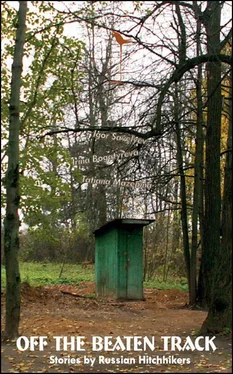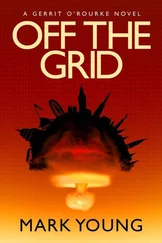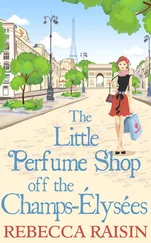Culture
On the first day Anton led me out onto the balcony of our apartment. The very center of the city — Tahrir Square (after the main street) — was indeed only steps away. The roofs of the tall buildings surrounding us were piled with trash.
“There you go, take a nice long look,” laughed Anton. “Only the tallest buildings are clean. All the other ones get dumped on from the windows of the surrounding buildings.”
Coming out of the building I often had to jump over piles of trash left by people taking out their trash to the dump. You either have to jump over it or walk around it.
Subway tickets are cheap but not always so easy to get.
One man pays while the next one is holding his money ready, and I’m third in line. When it’s my turn to buy a ticket, an Egyptian man nonchalantly shoves his money to the cashier right under my nose. Discouraged, I look back at him while another guy does the exact same thing. It’s just my perception of the situation that I was next in line: they don’t have this concept. Or at least I never picked up on any signs of its existence.
Cairo Museum
I always used to think that my favorite museum was the Tretyakov Art Gallery. Now I’m not so sure anymore.
In front of the famous Museum of Egyptian History there is a papyrus plant growing in a small shallow pool, its leaves spread out like the fingers of a hand. It’s one of the few papyrus plants left in Egypt. In his book Ra , Thor Heyerdahl, the famous Norwegian traveler and ethnographer, writes about how difficult it was to find Egyptian papyrus to build a papyrus boat.
“Miss! Ma’am! Mister!” Swarthy Arab sellers surround you as you exit the museum.
“Papyrus! Papyrus! Original papyrus!” They are hawking large “papyrus” posters with images of the pharaohs, pyramids, and symbolic maps of Egypt.
“Ten pound!” They fix you with an anxious gaze while you patiently make your way forward.
My friends and I wonder what they actually make these “original papyrus” from — probably just dried palm leaves.
I have the good luck of getting a guided tour of the museum. Otherwise I’d have a hard time getting oriented among the five thousand pieces on exhibit.
An hour, two, three, four… and my eyes are still wide-open, my lungs still giving out sighs of astonishment.
The Cairo Museum amazes with the wealth of its historical treasures, despite the fact that it is also the most burgled museum in the world.
I was there at the very end of my journey and nevertheless decided that I would have come to Egypt just to visit this museum.
Food
An apt observation: in cheap countries you spend a lot more money than in expensive ones. When everything is expensive you don’t buy anything. But when everything’s cheap you don’t hold back and buy everything on sale.
I’ve never tried fresh-squeezed orange juice in my life. Until now. Two pounds — ten rubles in Russia, or around 30 cents — and the shop-keeper picks one orange ball out of the pile, a second, a third, slices them in half and into the maw of his squeezer. A minute later, the juice comes pouring out in a cheerful, fidgety stream into the thick transparent glass.
And the fruit cocktails they make there!
I’ve already made short work of my cocktail but I still remain standing by the kiosk to watch the nimble hands of the cocktail-master at work. A white (probably milk-based) beverage pours into the bottom of the glass, then yellow (probably mango juice), then strawberry. The whole thing is crowned with a headdress of banana, apple and strawberry slices carefully arranged and lined up against the sides of the glass. But why does the vendor have a small plastic bag? Oh! He pours all of this beauty inside. It turns out this particular cocktail has been ordered to go by a woman wearing a dark-red burqa. So the decoration process was just to give her aesthetic pleasure?
Kosheri ! A mysterious word, right? Amazingly, the ordinary hotel tourists who come to Egypt don’t know this word. So why am I bringing it up? The kosheri spot is another place I love to observe the vendor’s dexterous work, unable to keep from drooling.
I get my portion to go (this is cheaper, by the way): so the vendor produces a plastic box, puts in a pile of rice, different kinds of pasta, peas, deep-fried onion and all of it bathed in a thin tomato sauce, plus two other sauces in small plastic bags. I am holding a warm box giving off a tempting tasty aroma.
Two pounds! Ten rubles! And you’re full.
You find yourself trying to convince yourself over and over that you’re hungry again.
All she needs is a hookah
All of the ground-level floors along the street are occupied with shops. Sometimes the shop-windows move apart as if to let one into the cave-like semi-darkness. A tea-room! Small tables only big enough to accommodate a few small tea-glasses and two pairs of elbows. You never see any women in these places. But they never go without men. To accompany the tea and conversation there are hookahs and backgammon.
I love tea but in Russia we don’t drink just plain tea. So first I go peek into my favorite shopl, the one selling sweets. What a pity we don’t have anything like these sweets in Russia. Enormous round metal trays present finely sliced baked goods of every possible variety. Sweet and very rich. Sometimes with pistachios, their green color highlighted dramatically against the golden-yellow background. They are really lovely but you have little time to admire them before you eat them up.
I’m carrying a plastic plate with these Eastern sweets, enjoying its weight. This time I take a table outside. The waiter brings out a glass of hot sweet tea and a glass of water to wash it down with. Casting glances at my solitary feasting, Egyptians promenade past. I don’t pay attention to anyone and peacefully enjoy my treat.
“There she is! Look at her! All she needs is a hookah,” a familiar male voice rings out loud and slightly indignant nearby.
It’s a friend from the AFT apartment coming back from his trip round the environs.
“What, can’t I sit here?” I say apologetically for no apparent reason, also smiling in response, and invite my friend to join in my exotic feasting.
Religion
The spot! Half of all Egyptians (men) in Cairo have a dark plum-sized spot right in the center of their swarthy brows (the percentage of spotted men is much lower in the rest of Egypt).
Like a medal, this spot is a mark of particular piety and religiosity. Muslims touch their foreheads to the floor several times during the namaz . So they develop this sort of callus. But why don’t other, no less pious peoples have such spots, like in Afghanistan, Syria and Saudi Arabia? We put this question to a number of Egyptians. And hear several different explanations in response:
Egyptians have softer skin than other nationalities.
The prayer rugs in the Cairo mosques are made of very rough material.
Egyptians are more fervent than the others: they don’t just touch their heads but bang them against the floor while praying.
We have our own explanations too. Egyptians probably just paint the spots on their foreheads. Maybe to demonstrate their piety. The second explanation: the prayer rugs in the mosques are not rough but just dirty.
Anton suggests the third and most convincing: due to unsanitary conditions, some kind of fungus is widespread on the mosques’ prayer-rugs and leaves its mark of devotion on the Egyptians’ brows.
In fact they don’t need any proof of their religious devotion. The space in front of the mosques, completely occupied with the faithful on Fridays, bears eloquent enough witness, and that’s not even all of them — they simply all can’t fit inside.
Читать дальше












